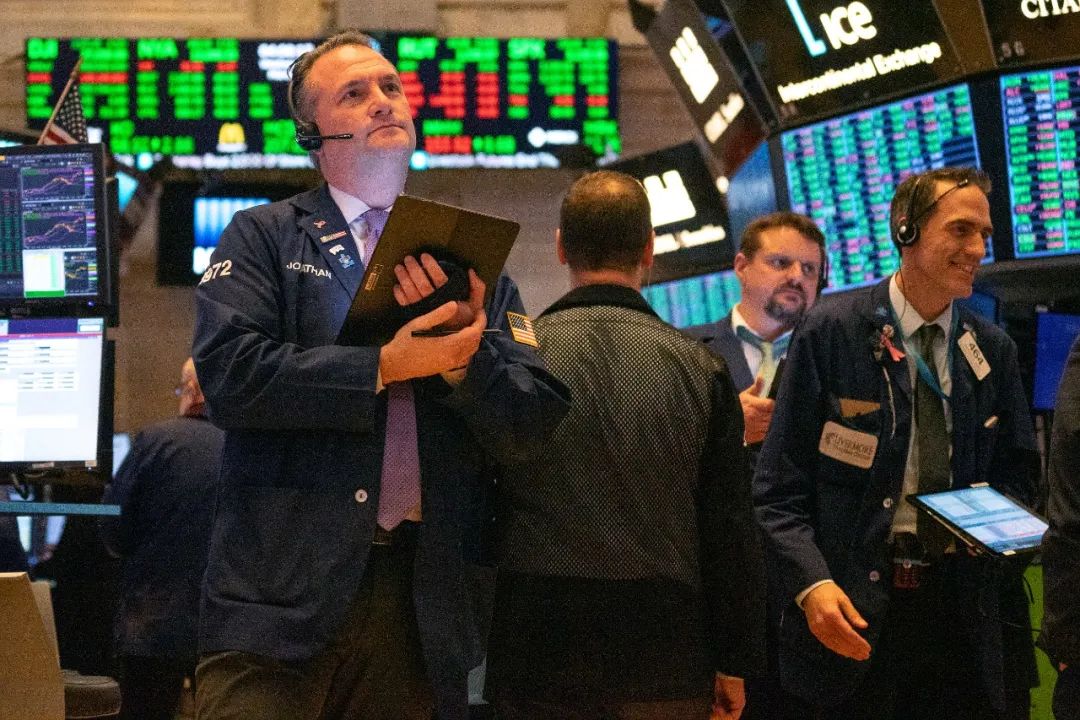
Amid the changes in the financial markets, on Wednesday, September 4, 2024, a storm of selling in the US stock market triggered by fears of an economic slowdown quietly hit, like a surging wave crashing into the hearts of global investors.
Recently, a series of economic data released, let the market filled with deep concerns about the economic slowdown. From weakness in manufacturing to sluggish growth in consumer spending, each piece of data is a pebble thrown into a calm lake, creating ripples. Investors are keenly aware of these signals, and the anxiety in their hearts is like a spreading cloud hanging over the U.S. stock market.
The poor performance of the manufacturing sector, an important pillar of the economy, has become a major cause for concern. A decline in factory orders and a decline in capacity utilization are signs that the economy is losing momentum. The machines that once rumbled now seem to speak of uncertainty about the future. Business owners, facing rising costs and falling demand, have had to adjust production schedules and lay off workers. This series of chain reactions, so that investors in the economic outlook greatly reduced confidence.
The lack of growth in consumer spending is equally worrying. As the ultimate driving force of the economy, consumers' behavior changes directly affect the direction of the market. In the shadow of the economic slowdown, consumers have become cautious, cutting unnecessary spending and increasing savings to prepare for possible risks. The decline in retail sales has put companies that rely on the consumer market in a tough spot. A fall in share prices was inevitable, which further exacerbated the panic in the market.
U. S. stock markets, the bellwether of global finance, have been in a frenzy of selling amid fears of an economic slowdown. Investors dumped their stocks in an attempt to preserve their assets ahead of the storm. Stock prices are falling like a kite that has broken its string. The Dow Jones, Nasdaq and S&P 500 have all suffered, and the downward curve seems to depict the anxiety and unease in the minds of investors.
Financial institutions are also in a nervous mood. Analysts are busy poring over all kinds of data, trying to provide clients with accurate investment recommendations. However, in the face of this storm, even the most professional analysts have difficulty predicting the direction of the market. Bankers, for their part, are keeping a close eye on the market, fearing that the sell-off could trigger systemic risks. They have strengthened risk management and raised the standards for reviewing loans to ensure the stability of the financial system.
This US stock market selling storm has not only had a major impact on the US economy, but also triggered a chain reaction around the world. Stock markets in other countries also fell. Global trade is also under great pressure, with companies becoming more cautious in their investment decisions and the growth rate of international trade slowing further.
In the midst of the crisis, however, there are not lost glimmers of hope. Governments and central banks took action to try to calm markets. In terms of fiscal policy, the government is likely to introduce measures to stimulate the economy and increase investment in infrastructure construction to promote employment and economic growth. In terms of monetary policy, the central bank may take measures such as interest rate cuts and quantitative easing to increase market liquidity and ease the financial pressure on enterprises and investors.
For investors, the storm is both a test and an opportunity. Amid the panic, some quality stocks may be wrongly killed, providing a buying opportunity for discerning investors. But at the same time, investors also need to remain calm and rational, fully assess risks, and avoid blindly following the trend.
Economic development is always full of ups and downs. The US stock market selling storm triggered by fears of an economic slowdown has brought a huge shock to the market, but it has also made us more aware of the complexity and uncertainty of economic operation. In the coming days, we need to pay close attention to changes in economic data, strengthen risk management, and respond to financial market challenges with a more robust posture. I believe that with the joint efforts of the government, the central bank and investors, we will surely overcome this crisis and usher in economic recovery and prosperity.

According to Bloomberg, a recent in-depth interview with Michael Dehal, senior portfolio manager at Raymond James' Dehal Investment Partnership, was released, focusing on the economic development prospects and potential risks of Canada and the United States in 2026.
According to Bloomberg, a recent in-depth interview with Mi…
TikTok Shop, the global e-commerce platform under ByteDance…
As a severe flu outbreak sweeps across the United States, w…
Recently, US Treasury Secretary Mnuchin publicly stated tha…
At the dawn of 2026, the United States launched a military …
From the stiff step when it first debuted in 2022 to demons…